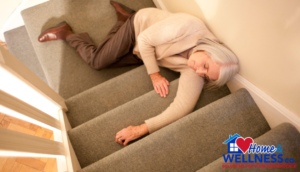
If only we could stay young forever knowing what we know now!
Much to our distaste, old age tends to attract unwanted aches and pains. Sometimes, illnesses of all kinds show up. People who neglect their health and wellness during the golden years can easily fall prey to serious illness.
There is never any exaggeration in the importance of following physical wellness practices throughout life, but especially in the elder years. Drinking plenty of water, eating fruits and veggies, and exercise are all really important daily activities.
We’ve outlined some of the most fundamental guidelines for you:
1. Try to be physically active every day. Any light activity, such as a walk in the park. If it’s cold outside, or there happens to be a pandemic going on, there are some simple exercises that can be done at home such as marching in place, toe raises, and toe taps.
Incorporate activities that improve flexibility by stretching, balance by doing a tight rope walk, and strength with canned food as your weights at least twice a week.
2. Refrain from lying down or sitting down for extended periods. These could be detrimental for your joints, to say the least. Stretch those muscles and use them.
3. Supplements are a senior’s best friend. They make up for what lacks in your body and diet. Take supplements to give your immune system a healthy boost, but it is better to take them only after your doctor approves. Some of the best supplements for seniors are vitamin B12, vitamin B6, vitamin D, and calcium supplements.
4. One can never stress the importance of a healthy diet enough at any age. give your immune system complete support possible with lean meats, vegetables, and fruits. You must ensure your body has sufficient antioxidants, and those come from plenty of fruits and veggies. Also, reduce your intake of fatty and sugary foods because they can trigger inflammation and damage the immune. Similarly, a limited amount of alcohol, like a drink or two a week at most, is the best for your health.
5. Be less susceptible to the bad germs and wash your hands frequently. Arm yourself with an antibacterial sanitizer wherever you go, and remember to keep your hands off surfaces when you’re away from home.
6. Keep your mind active as much as possible. Social engagement and productivity levels tend to be reduced, and that makes room for worries and anxiety to plague your mind. Those two may ultimately lead to high blood pressure and other illnesses resulting from anxiety and stress. Keep your mind occupied with healthy activities in whatever capacity possible so that you remain as stress-free and maintain your vitality for as long as possible.
7. Take only the medications you need. Take them as prescribed on a timely basis. Be mindful of side effects from medications and alert your doctor right away if you have any. Final Thoughts
In Conclusion
Getting older does not mean the end of good health. Rather, it only means the necessity of being mindful and conscious of your health. With a few healthy practices and healthy eating habits, we can hope to live a longer, illness free life.





